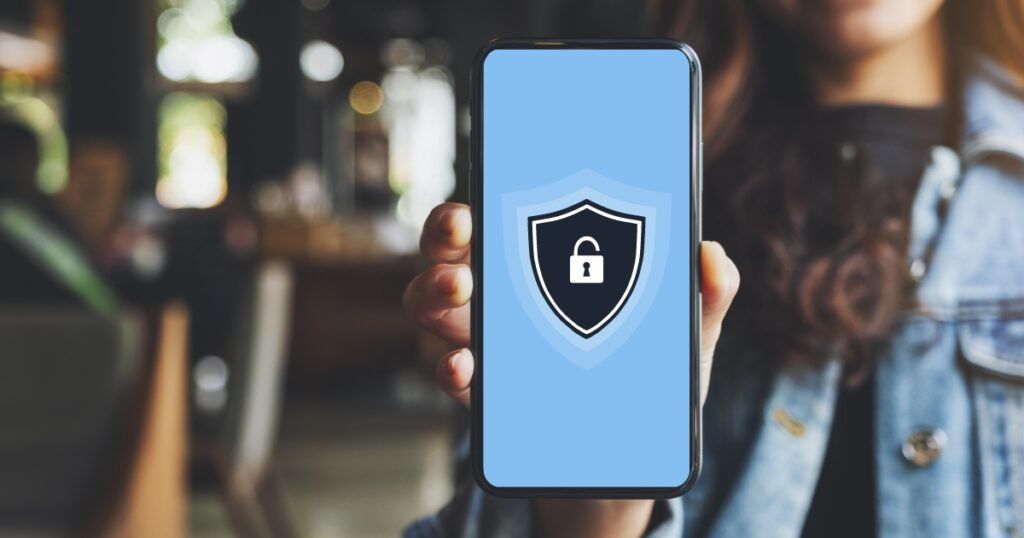In today’s tech-driven world, securing mobile apps has become a critical aspect of software development. This focus stems from the integral role mobile devices play in our lives. These devices store personal data like photos, emails, social media, and payment info. As a result, developers must implement strong measures to protect this sensitive information.
What Is Mobile App Security?
Mobile app security refers to the practices, techniques, and measures put in place to protect mobile applications from various threats and vulnerabilities that could compromise their functionality, data, and users’ privacy. With the widespread use of mobile devices and the sensitive information they hold, ensuring the security of mobile apps has become a paramount concern.
Common Types of Mobile Security Threats
Two distinct categories of security threats, known as Passive Threats and Active Threats, target various aspects of information and systems. These threats differ in their nature and impact. Let’s explore their definitions and differences:
Passive Threats:
Passive threats are characterized by unauthorized access or interception of data without altering or affecting the original information. In other words, they involve eavesdropping or monitoring activities to gather sensitive information. Passive threats aim to obtain information while avoiding detection, often by exploiting vulnerabilities in communication channels or encryption methods.
Common examples:
- Eavesdropping: Unauthorized individuals intercept data transmissions to gather sensitive information.
- Packet Sniffing: Attackers capture and analyze data packets on a network to extract valuable information.
- Wiretapping: Illegally tapping into communication channels to intercept data or conversations.
- Data Interception: Unauthorized entities capture data being transferred between devices or systems to extract information.
Active Threats:
Active threats, on the other hand, involve actions that directly impact the target system or information, often altering or disrupting its integrity, confidentiality, or availability. Active threats are more aggressive in nature and may include efforts to manipulate, destroy, or misuse the targeted resources.
Examples:
- Malware and Viruses: Malicious software infiltrates systems to steal or alter data.
- DoS Attacks: Excessive traffic overwhelms a system, causing it to be inaccessible.
- Phishing: Deceptive attempts to gather sensitive information through fake emails or websites.
- Data Modification: Unauthorized alteration of data to deceive users or disrupt operations.
- Unauthorized Access: Illegitimate entry into systems to steal or manipulate information.
The Importance of Security in Mobile Applications:
In an era characterized by the ubiquity of smartphones and the seamless integration of mobile apps into various aspects of our lives, the significance of prioritizing security in mobile applications cannot be overstated. These pocket-sized wonders have evolved into central repositories of sensitive personal information, including financial data, personal communication, and private media. Consequently, the potential risks associated with security breaches have reached unprecedented levels. Ensuring robust security measures within mobile applications is not just a technological necessity; it’s a fundamental commitment to safeguarding user trust, privacy, and the overall integrity of the digital ecosystem. Whether it’s protecting against data breaches, defending against malware, or maintaining secure communication channels, the meticulous incorporation of security features stands as a cornerstone of responsible app development. As the mobile landscape continues to expand, the imperative to address security challenges head-on remains paramount to fostering a safe and secure digital experience for all users.
Key Benefits of Mobile App Security
- Advanced Identity Theft Prevention: Safeguarding against digital identity theft is imperative in today’s interconnected world. Malicious actors often exploit vulnerabilities in mobile devices to gain access to personal data, including identification documents and passwords. Modern mobile applications developed in compliance with the latest security standards incorporate robust measures to counteract such threats, ensuring the protection of users’ digital identities.
- Enhanced Financial Data Security: Mobile apps frequently handle sensitive banking information, including credit card details, delivery addresses, and order histories. The potential for leaks of this confidential data underscores the importance of rigorous security practices. Comprehensive Quality Assurance methodologies play a pivotal role in minimizing the risk of security flaws within these apps, preserving the safety of financial information.
- Elevated Privacy for Media and Messages: With personal media and messages often residing on mobile devices or cloud storage, the stakes for privacy are high. Inadvertent exposure of such media can lead to personal blackmail or embarrassment. Contemporary mobile app security implementations prioritize end-to-end encryption of personal communication and ensure the protection of media files from unauthorized access.
- Resilience Against Infrastructure Breaches: The landscape of corporate data breaches underscores the significance of robust security mechanisms. The aftermath of massive data breaches can lead to further personalized attacks. Mobile applications developed in accordance with stringent security standards exhibit a greater capacity to withstand data breaches and limit potential data leakage during large-scale incidents.
- Mitigation of Hardware Hijacking: As mobile devices evolve with advanced sensors and AI capabilities, they can be exploited for remote spying or even participation in malicious activities such as DDoS attacks. Mobile app security strategies effectively shield against hardware-level hijacking attempts, offering protection against malware infiltration, botnet inclusion, and unauthorized access to audio, video, and location data.
In the realm of mobile app development, prioritizing security translates into comprehensive defense against a spectrum of threats. Applications adhering to stringent security protocols resonate with users due to their up-to-date protection mechanisms, making them a preferred choice in an environment where privacy, data integrity, and financial safety are paramount concerns. A secure mobile app fosters a sense of safety in both personal and financial domains, meeting users’ fundamental need for a secure digital experience.
Why You Should Choose iSKY.SOLUTIONS for Enhancing Mobile App Security
Ensuring mobile app security is crucial, and that’s why it’s important to entrust this task to skilled engineers with the right experience and testing tools. At iSKY.SOLUTIONS, our experts work in coordinated teams, offering a wide range of mobile app development services. We conduct thorough testing and maintain high standards of quality and security throughout the development process. Feel free to reach out to us for the creation of a mobile software product that adheres to industry-leading quality and security standards.












